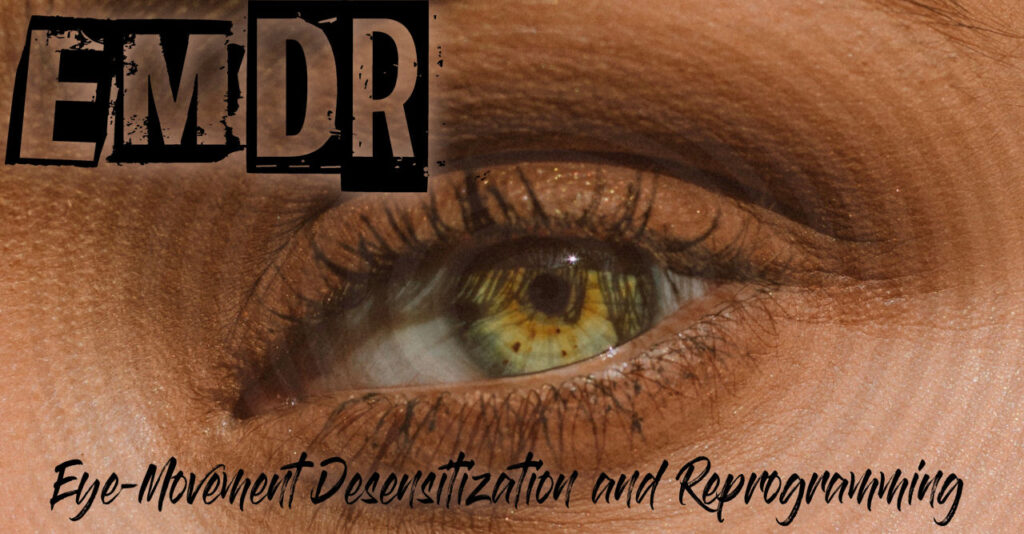Is EMDR Hypnosis – The OVERVIEW
The scope of hypnosis has been debated for a long time. The debate centers around what should be categorized as hypnosis, and what should not. For instance, for a long time, Eye-Movement Desensitization and Reprogramming (EMDR), has been categorized by many people as hypnosis. However, this position is simply not true and there has been a haze of confusion on this. There is a clear difference between the two.
This article is going to explore therapy through EMDR and its comparison to hypnosis.
IS EMDR HYPNOSIS?
EMDR is a type of exposure that makes use of visualization techniques in order to achieve certain objectives. The mind allows the brain to make a re-possession of those memories. This is a non-traditional technique that makes use of eye movement desensitization and gives treatment with little involvement of the person. The bottom line is the utility of evidence procedure and protocol in order to help the client. For instance, electronic devices enhance bilateral stimulation.
The American Journal of Hypnosis states that the scope of EMDR deals with how one perceives information, then stores it, and then retrieves it. It is a unique treatment process, which, as a matter of fact, can also be used together with hypnosis. But just for the purpose of retaliation, these are two different processes that are used for different purposes and carry different outcomes.
Nabila Ismail, writing for Forbes Health, states that EMDR is guided by Adaptive Information Processing Theory. This is a description of how memory is processed and stored. The theory postulates that one gets stressed because events have not been processed, and consequently released, but rather, they are stuck in the amygdala. The amygdala is the emotional center of one’s brain. When this situation occurs: four things are bound to happen: fight response, flight response, negative feelings about oneself, and intense emotional response.
If you want to be at peace, you might require a number of therapy sessions for EMDR. In other words, the sessions have to be successful if you are to achieve optimal therapeutic outcomes. Taking half-baked sessions will not be viable and sustainable in the long run. At the same time, it is important to avoid interruption.
The therapist should be cautious if he or she should administer EMDR in the first place. It is not uncommon to find people reporting that they feel terrible after the therapy. A significant number of people have been left with a worse feeling than in the beginning. This is because the therapist stimulates stored experiences but is not properly processed at the deepest level.
THE DIFFERENCE BETWEEN HYPNOSIS AND EMDR
There are clear differences between hypnosis and EMDR. To start with, hypnosis aims at the development of a single and highly focused aroused sensitivity. EMDR aims at establishing a duality of not only the positive but also the negative. These include imaging the worst memories and experiences. It should be noted that hypnosis is a common evidence-based protocol in counseling sessions. The clinician enables you to focus on awareness. Negative thoughts are changed to thoughts that are beneficial and positive, for instance, the use of past mistakes as a platform for learning.
Hypnosis is, generally, an umbrella technique for different situations including pain control, hot flashes, behavior change, cancer treatment, and mental health conditions. EMDR therapy could be categorized as a specialized tool for addressing psychological trauma. Thus, EMDR helps in reducing the signs and symptoms of PSTD. People who went through stress can be healed by processing memories that were hitherto not processed. Therefore, when some practitioners in EMDR present it as a cure, then they are not genuine, and one should be careful in engaging with such people.
Lastly, in hypnosis, one is encouraged to go into a deep state of relaxation. EMDR does not reach a state of deep relaxation. Whereas someone, when practicing EMDR can relax, one is going to be fully aware.
So what is different between the two? There is no direct answer to this question. Each person is going to have a different experience. The best thing is to consult an expert who will listen to your narrative, and help you make a viable decision.
HOW TO GET THE BEST OF EMDR
There are various things that one can do in order to get the best of EMDR and realize an optimal experience. To start with, the therapist should neither be too fast nor too slow, in EMDR. On one hand, being too fast could cause deeper damage to the psychological status of the client. On the other hand, being too slow could delay the stage of processing, and this will translate to more time prior to optimal healing. Evaluation and monitoring of the client, with a specific focus on challenges, and barriers, will come in handy in helping the client in the best way possible.
As an individual client, you should be highly functional, intentional, and cooperative in the process. This will enable you to start processing soon after re-sourcing. If you are a dissociative client, then you are going to keep on repeating phases. What this will mean is that you will take more time before you achieve optimal healing.
The market is saturated with experts who claim expertise in EMDR. Choosing the right one is not only daunting but also time-consuming. Whatever the choice you make, make sure that you seek the services of a licensed practitioner. Being licensed means that one has reached the minimum quality standard required in a particular trade. In addition to that, being licensed means that should things go wrong one will be able to pursue justice.
EDMR Hypnosis – THE CONCLUSION
The debate about hypnosis and EMDR will range on as many people confuse the two. However, if the current literature is anything to go by, the two practices are distinct and separate and will lead to different outcomes. Experts will continue doing more research on this issue, and in the near future; there will be more concrete answers. Overall, the choice of EMDR or hypnosis depends on different situations and circumstances, but either of them is consequential for therapy.

